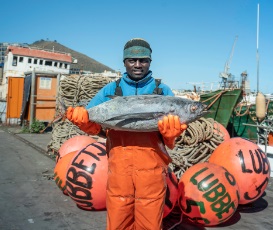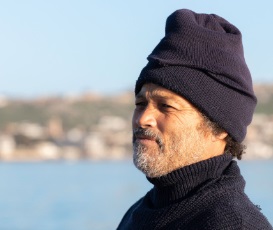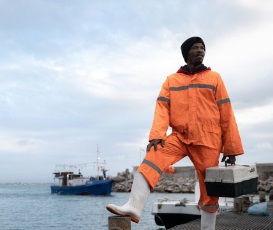
Watch the East Coast rock lobster fishery film

Fishery profile

The East Coast rock lobster is an important natural resource for communities along the Transkei coast of the Eastern Cape. With few employment opportunities in the rural parts of the region, many households are food insecure and heavily dependent on the ocean for their lives and livelihoods. Fishers harvest numerous species for local consumption, including bream, rock cod and grunter, as well as limpets and mussels.
But the most important species by far is the East Coast rock lobster. Local fishers collect lobsters by hand during the day. Lobster catches are too valuable to be eaten by the fishers and are sold instead to processors. The majority of the lobster catches are exported to U.S. and Asian markets, while the rest are sold locally, to hotels and restaurants. The lobsters are a vital economic lifeline to the region.
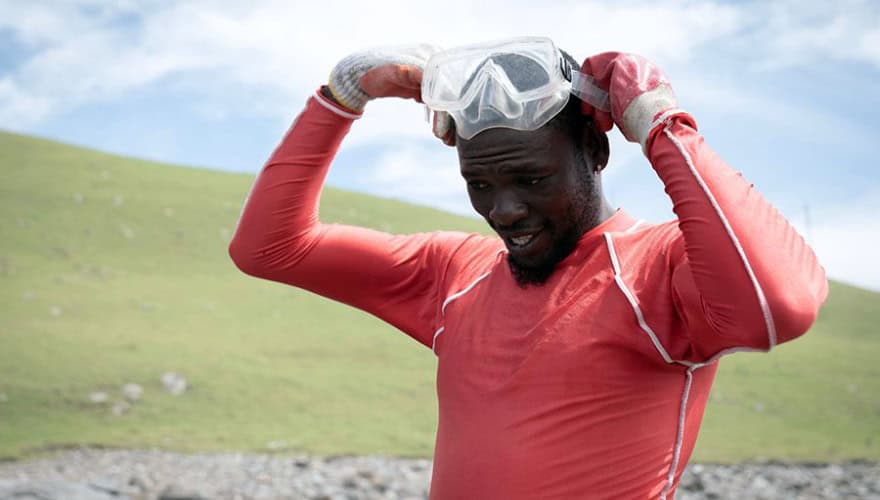
“When I’m fishing, I’m happy. I’m happy because I’m able to feed my family. Here you can make a living with your own hands. You don’t go to sleep hungry when you’ve caught lobster.”
The fishery is managed through a system of size and bag limits. Fishers are allowed to collect no more than eight lobsters per day each, and every lobster landed must be of a permissible size. Harvesting is prohibited during closed seasons, which have been established to protect the species during its reproductive season.
The fishery has only recently embarked on its journey towards sustainability, and faces several challenges. Data are limited, but the stock is thought to be fully fished across its entire distribution, and overfished in certain localised areas. Fishers without permits harvest lobster illegally and during closed seasons, undermining sustainable management. And most recently, the coronavirus pandemic and associated lockdowns have cut the fishers off from the rest of the value chain, reducing local incomes.
Nonetheless, there are encouraging signs that the Fish For Good project is starting to contribute to improved management of the fishery.
“I have been amazed by the level of understanding and commitment to sustainability by small-scale fishers in the East Coast rock lobster fishery.”
Fishery Improvement Coordinator, WWF SA

Fish for Good Improvement Actions
Some of the actions include:
- The fishery is undertaking to design and implement a system to collect information on catches and interactions with other species. This will be used to inform an assessment of the status of the stock and develop a fishery-specific management plan.
- Other information will be collected to better understand how the fishery impacts benthic habitats, and if required, a strategy will be developed to manage these impacts.
- An anticipated future development is the creation of a more inclusive governance structure that provides an opportunity for all stakeholders to be heard.
“Our ocean requires that we preserve her because our children’s future depends on it too.”
More South Africa Fish For Good stories
Find out more
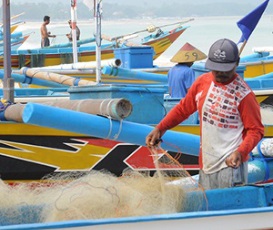
Fish for Good (project home)
Fish for Good is a four-year project aiming to guide fisheries in Indonesia, Mexico and South Africa on their journey towards sustainability.
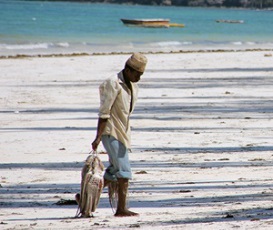
Southwest Indian Ocean Octopus Project (SWIOCeph)
An increased global interest in octopus creates potential for export market opportunities. This project will assist octopus fishing communities in the southwest Indian Ocean regions towards more sustainable practices.
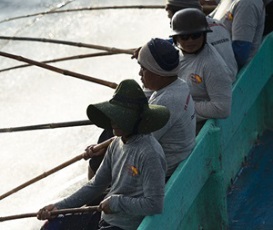
Fish for Good - Indonesia
Indonesia is the world's second largest fish producer. Some stocks are being overfished. Local food security, economy and marine biodiversity are at risk.
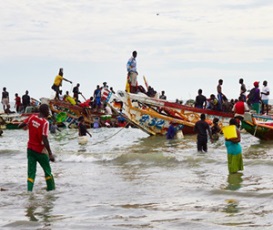
Fishery Improvement Projects (FIPs)
The MSC recognises the important contribution that FIPs can make to improving overall fisheries health and in promoting sustainable seafood. We work to provide technical support and capacity to credible FIPs.


